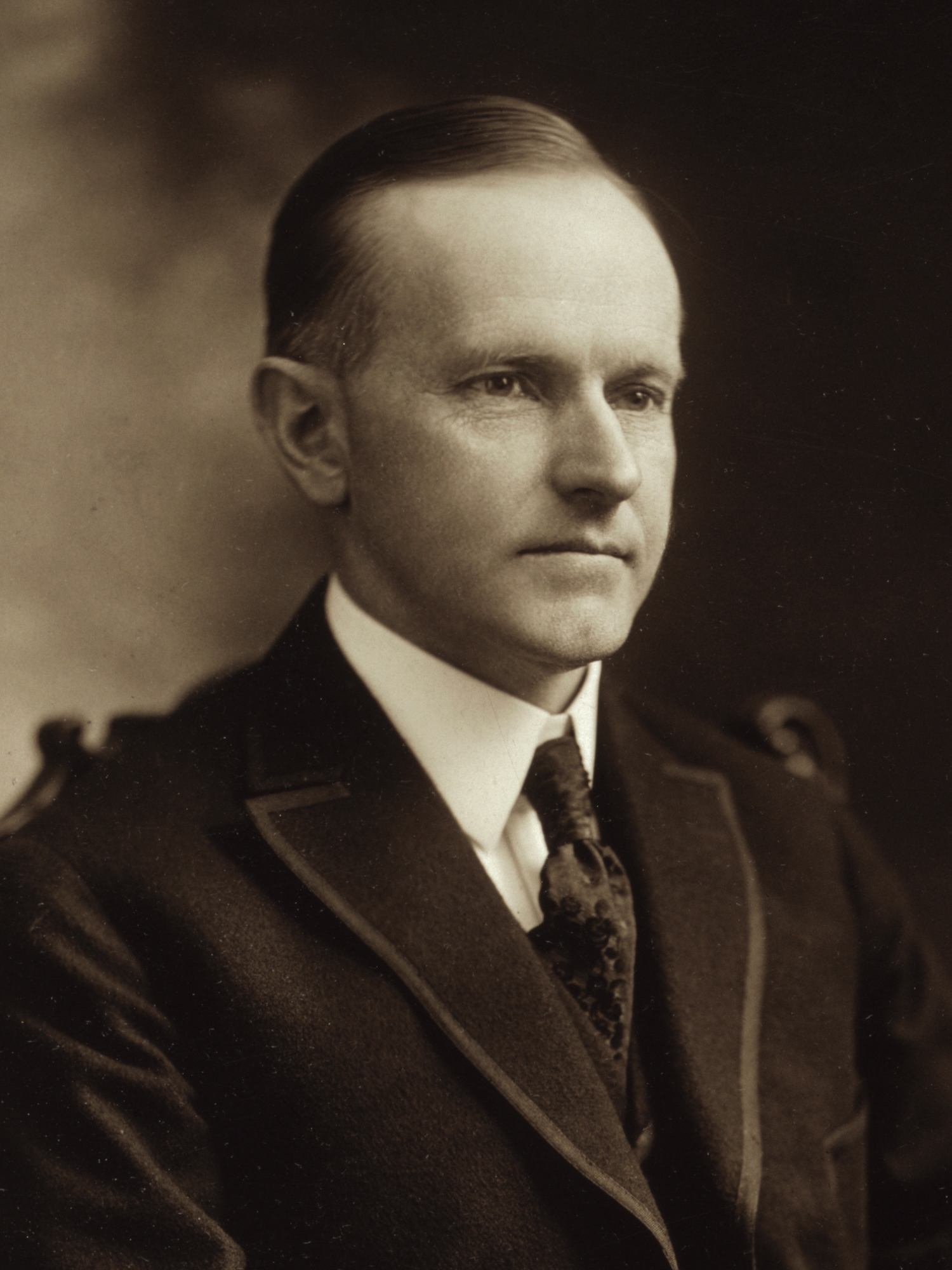1920s, Second State of the Union Address (1924)
Calvin Coolidge Quotes
1920s, The Reign of Law (1925)
1920s, The Reign of Law (1925)
1920s, Whose Country Is This? (1921)
“Knowledge comes, but wisdom lingers”
Widely misattributed and misquoted. Coolidge was quoting Tennyson in a June 3, 1925 speech to the US Naval Academy. Foundations of the Republic pp 237 : THE NAVY AS AN INSTRUMENT OF PEACE The poet reminds us that "Knowledge comes, but wisdom lingers." It may not be difficult to store up in the mind a vast ...
Misattributed
1920s, Second State of the Union Address (1924)
“The Constitution is the sole source and guaranty of national freedom.”
Address accepting nomination as Republican candidate for president, Washington, D.C. (4 August 1924); published as Address of Acceptance (1924), p. 15.
1920s
1920s, Ordered Liberty and World Peace (1924)
1920s, The Press Under a Free Government (1925)
1920s, The Reign of Law (1925)
1920s, Ways to Peace (1926)
1920s, Second State of the Union Address (1924)
“What we need is not more Federal government, but better local government.”
Address at Arlington National Cemetery (30 May 1925), in Foundations of the Republic https://archive.org/stream/foundationsofrep00unit/foundationsofrep00unit_djvu.txt (1926), Coolidge, Ayer Publishing, p. 228.
1920s
“I do not choose to run for President in 1928.”
Statement to reporters (2 August 1927); cited in Bartlett's Famous Quotations, 16th ed. (1992).
1920s
1920s, The Genius of America (1924)
1920s, Proclamation Upon the Death of Woodrow Wilson (1924)
1920s, Second State of the Union Address (1924)
1920s, Authority and Religious Liberty (1924)
1920s, The Reign of Law (1925)
1920s, Second State of the Union Address (1924)
1920s, The Reign of Law (1925)
1920s, Speech on the Anniversary of the Declaration of Independence (1926)
1920s, Freedom and its Obligations (1924)
1920s, Second State of the Union Address (1924)
“The words of a President have an enormous weight and ought not to be used indiscriminately.”
As quoted in Coolidge: An American Enigma (1998), by Robert Sobel, Regnery Publishing, p. 243.
1920s
1920s, The Reign of Law (1925)
1920s, Whose Country Is This? (1921)
1920s, Authority and Religious Liberty (1924)
1920s, Whose Country Is This? (1921)
1920s, Second State of the Union Address (1924)
1920s, Second State of the Union Address (1924)
1920s, The Reign of Law (1925)
1920s, Ordered Liberty and World Peace (1924)
1920s, Speech on the Anniversary of the Declaration of Independence (1926)
1920s, Second State of the Union Address (1924)
1920s, The Reign of Law (1925)
1920s, Second State of the Union Address (1924)
1920s, Ordered Liberty and World Peace (1924)
“That man has offered me unsolicited advice for six years, all of it bad!”
On Herbert Hoover, as quoted in "Lords of Finance" (2011), by Liaquat Ahamed, Random House, p. 299.
1920s
1920s, Authority and Religious Liberty (1924)
1920s, America and the War (1920)
1920s, Authority and Religious Liberty (1924)
1920s, Whose Country Is This? (1921)
1920s, Toleration and Liberalism (1925)
1920s, Ways to Peace (1926)
1920s, Second State of the Union Address (1924)
1920s, America and the War (1920)
Speech on Armistice Day in Washington (11 November 1928), quoted in The Times (12 December 1928), p. 11.
1920s
